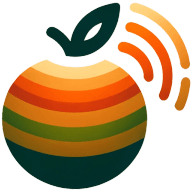5 Pitfalls to Avoid When Aiming for a High-Protein Diet
High-protein diets have gained popularity, but navigating them can be tricky. This article reveals common pitfalls to avoid when increasing protein intake, drawing on expert insights from the field of nutrition. By understanding these potential missteps, readers can make informed decisions to optimize their high-protein diet for better health outcomes.
- Prioritize Whole Foods Over Processed Protein
- Focus on Quality and Bioavailability
- Balance Protein Intake with Other Nutrients
- Choose Nutrient-Rich Whole Food Proteins
- Pair High Protein with Adequate Fiber
Prioritize Whole Foods Over Processed Protein
Being into fitness and bodybuilding, protein is very important to me. The biggest pitfall I've encountered when aiming for a high-protein diet is relying too much on processed protein sources like bars, shakes, and snacks. While they're very easy to use to increase protein intake, they often come with added sugars, artificial ingredients, and extra calories. My advice to others would be to focus on nutrient-dense whole foods. This includes chicken, turkey, eggs, Greek yogurt, cottage cheese, and legumes. While these whole foods do take longer to prepare, they not only deliver better nutrition overall, but they also help keep you fuller for longer.

Focus on Quality and Bioavailability
One common pitfall I see with people aiming for a high-protein diet--especially in the context of reversing diabetes or metabolic issues--is focusing solely on quantity instead of quality and bioavailability. Many load up on processed protein powders, bars, or meats filled with additives, thinking more is better. But this often backfires by creating inflammation, digestive issues, or burdening the liver and kidneys--especially in people already dealing with insulin resistance or poor detox pathways.
My advice: prioritize clean, whole-food sources of protein like grass-fed beef, wild-caught fish, pastured eggs, and plant-based options like lentils or quinoa if tolerated. And make sure you're also supporting digestion with enzymes, B vitamins (especially B1), and gut health--because it's not just what you eat, it's what your body can absorb and utilize. In a root-cause approach, everything works together--protein intake, liver function, adrenal support, and gut health all need to be aligned to get real results.

Balance Protein Intake with Other Nutrients
I often notice people following high-protein diets overdo it, eating far more than their body actually needs. They think more is better, but that's not always true. Too much protein, especially for long periods, can cause issues like digestive discomfort, dehydration, or even strain on the kidneys.
My advice is to aim for balance. Know your target based on your body weight and activity level, and don't forget to include plenty of fiber, healthy fats, and carbohydrates too. Protein is important, but it's just one part of a healthy diet.

Choose Nutrient-Rich Whole Food Proteins
As an RDN, a common pitfall that I have encountered with high-protein diets is heavy reliance on processed protein sources, such as protein bars or shakes. Though convenient, they lack the nutritional benefits of whole foods and may contribute to nutrient imbalances or excessive calorie intake.
To avoid this mistake, prioritize whole food protein sources. There are several options, such as lean meats, fish, eggs, dairy, legumes, and nuts. Apart from offering high-quality protein, they also provide essential vitamins, minerals, and fiber. When using supplements, I recommend ones with minimal additives. Balance your diet by including sufficient carbohydrates and healthy fats. Be watchful of portion sizes to balance your energy needs. This approach ensures a sustainable and nutrient-rich high-protein diet.

Pair High Protein with Adequate Fiber
One pitfall I ran into chasing a high-protein diet was accidentally cutting fiber way too low. I got so focused on hitting protein targets — eggs, chicken, shakes — that I basically forgot plants existed for a while. Result? Constant bloating, sluggish digestion, and feeling weirdly heavy even though I was technically "eating clean."
My advice: when you're stacking protein, stack fiber just as intentionally. Build every meal with a "fiber sidekick" — berries with your protein shake, spinach with your eggs, lentils with your chicken. It's not just about balance for the sake of it — fiber keeps your digestion running smooth, which actually helps your body use the protein better.
Protein without fiber is like building muscle with sandbags tied to your ankles. You'll get there eventually, but you're making it way harder than it needs to be.


